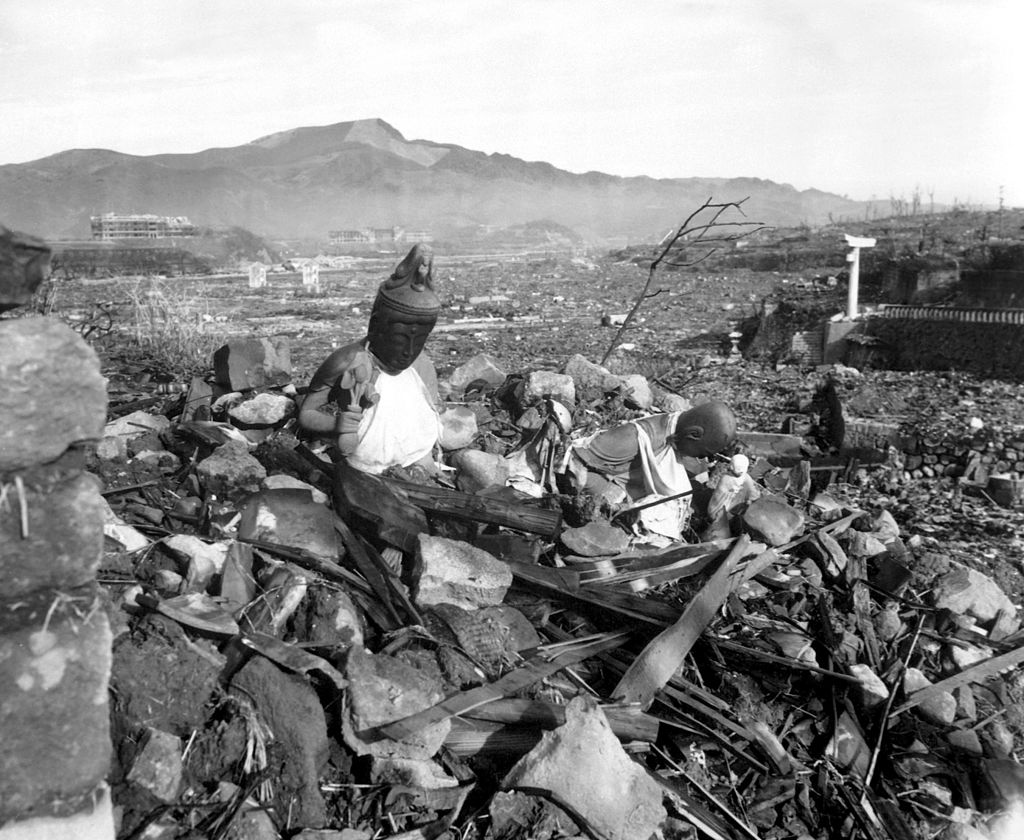IFireflyl
Gold Member
Nobody is saying that japan was innocent, that would be a spin.
Saying that it is a war crime using the most barbaric weapon in human history without even knowing well the long lasting effects of this weapon, it is not.
You don't respond to normal bombs with nuclear bombs, and i'm sure that american was never in short supply of normal bombs during war.
Again, nobody knew the long-term fallout, and it was thought that the nuclear bomb was just a bigger bomb. You say ignorance is no excuse, but that is absolutely wrong. We didn't imprison people for making lead-based paint or using asbestos for insulation. Coca-Cola didn't go under for their using of cocaine in their beverages. There are so many new findings that allow us to re-calibrate going forward that we don't punish for retroactively. If we punished retroactively people would be far less likely to invent new things for fear of a study a decade or two in the future that would put them in jail or put them to death (I think some states still have the death penalty).
It has been discussed a few pages back, by a few people, so I won't repeat all again.
But it was the Hague Conventions of 1899 and 1907, that was signed by the USA. And it already had provisions for attacks on civilians.
But then again, is it really necessary a international conventional on war laws, to understand that killing hundreds of thousands of civilians is a crime?
If there were no prior conventions on war, to the Geneva convention of 1949, would we let all those Nazis go free?
And again, I proved that the Hague Conventions didn't apply.
Hiroshima and Nagasaki where military targets. The Hague Conventions of 1899 and 1907 did not prevent attacks on military targets even if there would be civilian casualties.
And again, Japan and their citizens were warned of bombings prior to them occurring. Japan's leadership failed to evacuate their citizens. The U.S. did what they could to mitigate civilian casualties. Japan didn't surrender before the bombings. Japan did not evacuate their citizens. Japan was the aggressor. In every way this is the fault of the Japanese military and leadership. I can't fathom why people are trying to spin the narrative that the defender went too far when there were no laws/conventions/treaties against the actions they took.
And no, we wouldn't let all those Nazi's go free even without previous laws/treaties/conventions. What I am saying is that you can't retroactively hold people accountable for crimes that weren't crimes at the time they were committed. Imagine if someone littered before there was a law against littering and a police officer saw it, and the next day a law went into effect that made littering illegal and the person was fined or jailed for it. That's ridiculous. Without the laws/treaties/conventions we could still punish those who attacked us, but without those laws/treaties/conventions you can't say the U.S. is guilty of a war crime. And the fact is that there was no actual law/treaty/convention violated, so there was no war crime.
That doesn't mean it wasn't a terrible thing. That doesn't mean we don't have to learn from it. Lessons were learned from this on a global scale. It just means that you can't call it a crime if it wasn't actually a crime at the time. Germany and Japan were guilty of war crimes that were actually international crimes at the time they committed the acts. That is the difference.






